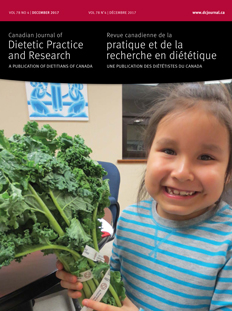Abstract
Purpose: Little is known about the lifestyle (e.g., physical activity, nutrition) information needs among breast cancer survivors living in nonurban settings. This study determined lifestyle information sources, needs, and preferences among breast cancer survivors in Northern British Columbia (BC), Canada.
Methods: A cross-sectional, paper-based survey was distributed to a random sample of breast cancer survivors (n = 300) in Northern BC, which was generated through the BC Cancer Registry.
Results: A total of 132 breast cancer survivors responded (true response rate = 49%; 132/270 received surveys). Two-thirds lived in rural and remote locations. The most commonly reported need was diet and physical activity (58%) to decrease risk of recurrence or improve survival. The most frequently identified sources of lifestyle information included physicians, family or friends, the internet, and magazines. A majority of breast cancer survivors (64%) preferred face-to-face interactions when considering potential lifestyle-related programs or services; distance-based formats (e.g., videoconferencing) were least preferred (11%).
Conclusions: There is strong interest in information about lifestyle behaviours among breast cancer survivors in nonurban settings such as Northern BC. Future research is needed to investigate how best to deliver evidence-based lifestyle-related information to breast cancer survivors residing in nonurban settings.
Résumé
Objectif : On sait peu de choses sur les besoins en information sur le mode de vie (p. ex., l’activité physique et la nutrition) chez les survivants du cancer du sein vivant en milieux non urbains. Cette étude a examiné les sources d’information sur le mode de vie, les besoins et les préférences de survivants du cancer du sein du nord de la Colombie-Britannique (C.-B.), au Canada.
Méthodes : Une enquête transversale en format papier a été distribuée à un échantillon aléatoire, généré par le registre du cancer de la C.-B., de survivants du cancer du sein (n = 300) dans le nord de la C.-B.
Résultats : Au total, 132 survivants du cancer du sein ont répondu (taux de réponse réel = 49 %, 132/270 sondages reçus). Les deux tiers vivaient dans des régions rurales ou éloignées. Les besoins les plus fréquemment rapportés concernaient l’alimentation et l’activité physique (58 %) pour réduire les risques de récidive ou améliorer la survie. Les sources les plus fréquemment identifiées d’information sur le style de vie incluaient les médecins, la famille ou les amis, l'Internet et les magazines. Une majorité de survivants du cancer du sein (64 %) préférait les interactions face à face lorsqu’ils envisageaient des programmes ou services potentiels liés au mode de vie; les formats à distance (p. ex. la vidéoconférence) étaient les moins appréciés (11 %).
Conclusions : Il y a un intérêt important pour de l’information sur les comportements relatifs au mode de vie chez les survivants du cancer du sein vivant en milieux non urbains comme les régions du nord de la C.-B. Des recherches futures sont nécessaires pour étudier le meilleur moyen de transmettre de l’information sur le mode de vie fondée sur des données probantes aux survivants du cancer du sein vivant en milieux non urbains.



